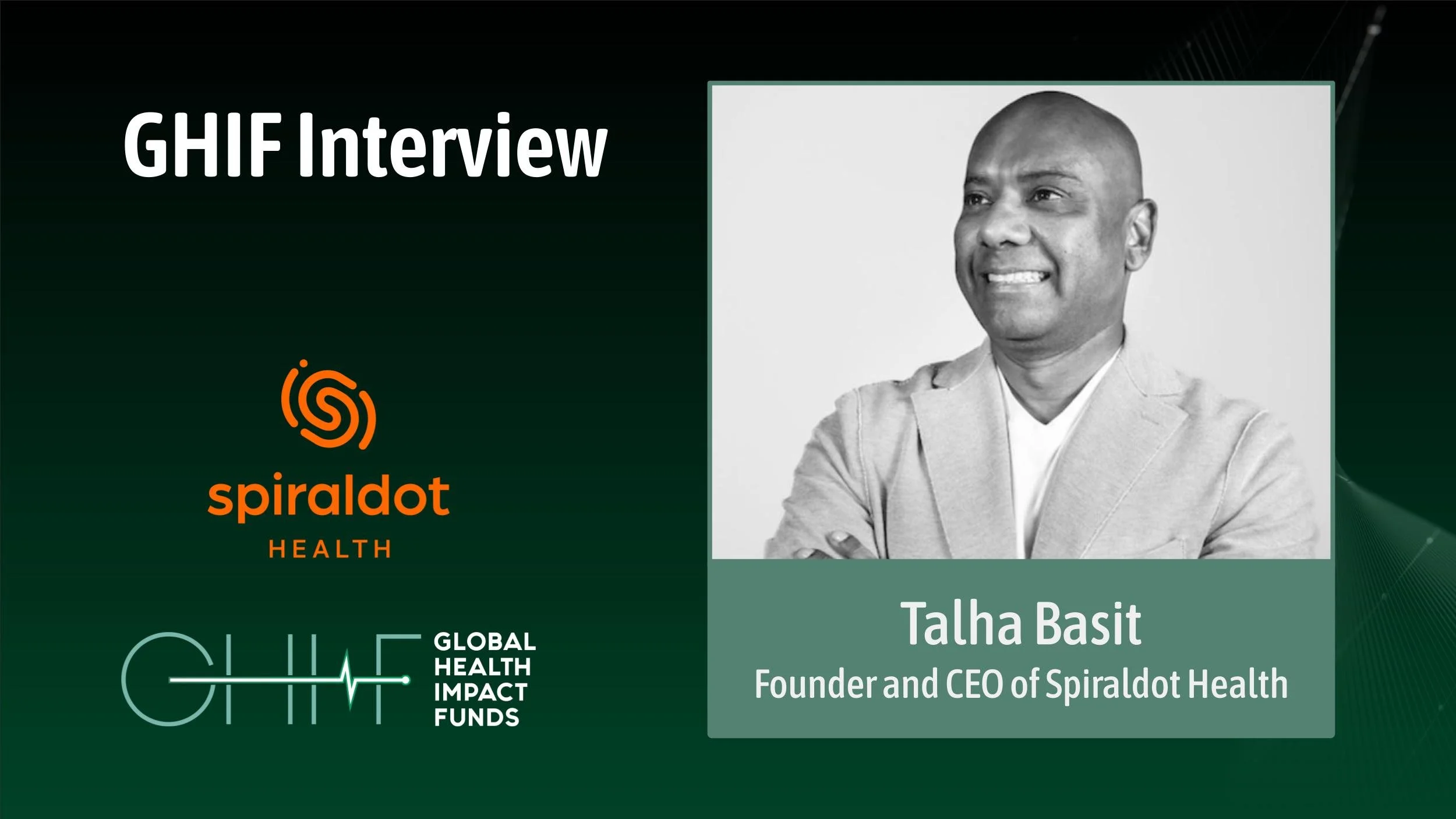
January 2026 Newsletter
Investing in Healthcare: Why Domain Expertise Matters More Than Ever
Healthcare is one of the most consequential, and complex, sectors in which to invest. Innovation here does not simply reshape markets; it reshapes care delivery, clinical decision-making, and patient outcomes. Yet unlike other asset classes, healthcare investing cannot rely on speed, pattern matching, or surface-level technology trends. Scientific validity, clinical relevance, regulatory risk, and real-world adoption all determine whether innovation succeeds.
This reality is precisely why the Global Health Impact Fund (GHIF) was created. GHIF was founded on the belief that healthcare innovation should be evaluated and guided by those closest to patient care. By placing clinicians at the center of the investment process, GHIF aims to bridge the persistent gap between frontline medical insight and venture capital, ensuring that promising technologies are not only innovative, but clinically meaningful, scalable, and aligned with how care is actually delivered.

December 2025 Newsletter
Functional Health: The Next Frontier in Preventative, Personalized Care
As healthcare shifts decisively toward prevention, personalization, and whole-person care, Functional Health is emerging as one of the most compelling movements in modern medicine. Functional Health is evolving into a data-informed, systems-based clinical framework that seeks to identify and treat the root causes of chronic disease. For clinicians on the front lines, and for investors backing the next generation of healthcare innovation, the field represents a powerful convergence of biology, technology, and long-term patient outcomes.

November 2025 Newsletter
The Critical Crossroads: Technology Driving Precision Medicine in the Pre-Analytical Phase
Precision medicine, the revolutionary approach of tailoring treatments based on an individual’s unique characteristics, relies entirely on accurate, high-quality data. This data spans two crucial domains: the genomic scope (an individual’s DNA and RNA) and the phenomic scope (observable physical and biochemical characteristics, symptoms, and environmental interactions). While significant advancements have been made in sequencing and analytical technology, the reliability of a precision diagnosis is often determined long before the sample enters the analyzer, in the pre-analytical phase or pre-lab testing. New technological advances, from sophisticated automation to intelligent data tracking are now focusing intensely on this initial error-prone stage, to ensure the promise of personalized care is met with reliable, actionable results.

October 2025 Newsletter
Robotics in Healthcare: Transforming Care at the Edge
The integration of robotics is fundamentally transforming the landscape of modern medicine, pushing the boundaries of what's possible in the clinic and the operating room. From precision surgery to autonomous hospital logistics, robots are helping providers do more with less, reducing human burden, and improving outcomes. As medical systems face workforce shortages, increasing demand, and rising costs, robotics offers a compelling tool to augment, and sometimes redefine, the roles of clinicians. But successful adoption requires more than just engineering: it depends on integration, trust, regulation, and a clear value proposition. The ultimate goal is to bridge the gap between technological innovation and clinical application.

September 2025 Newsletter
Personalized Medicine: Tailoring Care for the Individual
The future of healthcare is a story told in data. While personalized medicine has long been an ambitious goal, it is the exponential growth and intelligent application of patient data that is truly making it a clinical reality. Advances in genomics, digital health, and AI are equipping clinicians with the ability to tailor interventions based on each patient’s unique biology, lifestyle, and environment. From precision diagnostics to individualized treatment pathways, the opportunities are extraordinary. For clinicians, startups, and investors alike, the momentum behind precision medicine is creating unprecedented opportunities for impact.

Reimagining Oncology Workflows: A Conversation with Talha Basit of Spiraldot Health
Reimagining Oncology Workflows: A Conversation with Talha Basit of Spiraldot Health
Talha Basit, co-founder and CEO of Spiraldot Health, is a healthcare innovator focused on harnessing artificial intelligence to transform clinical workflows. With a background spanning healthcare consulting, technology, and entrepreneurship, he brings both technical expertise and strategic insight to solving some of the most pressing inefficiencies in healthcare delivery, starting with oncology. In this interview, Talha shares insights into Spiraldot Health's unique approach to training and fine-tuning AI models, detailing their methodology built on four interconnected pillars: a clinical-first data foundation, a rapid iteration training pipeline, continuous clinical validation, and robust post-deployment monitoring systems.
